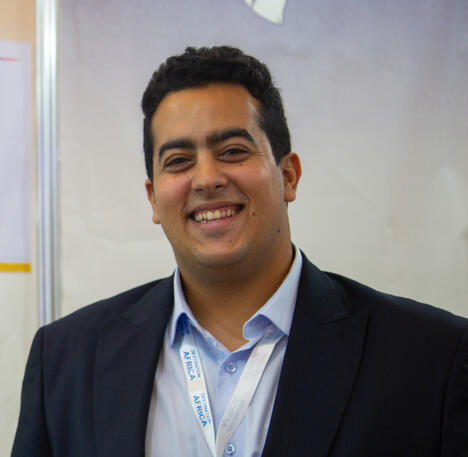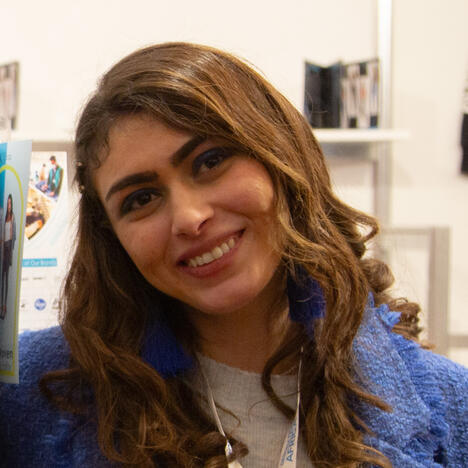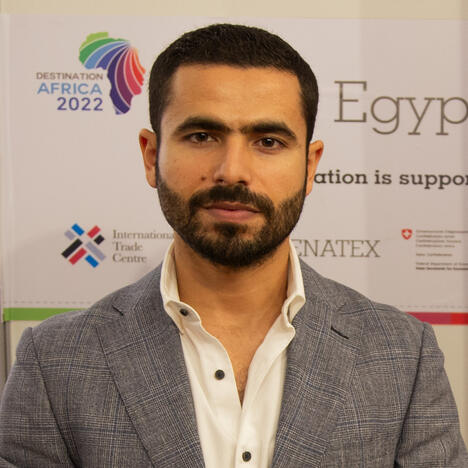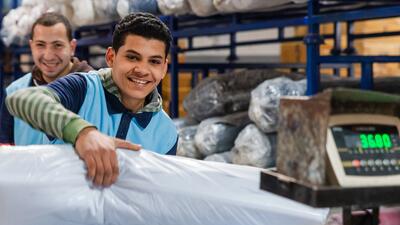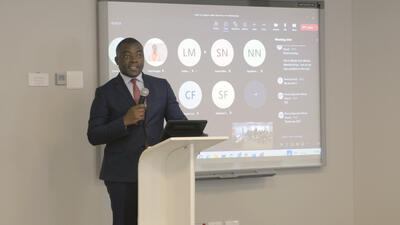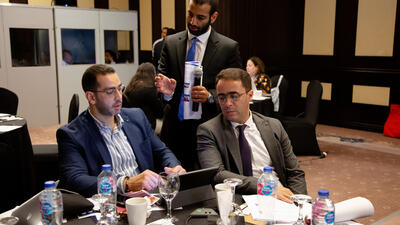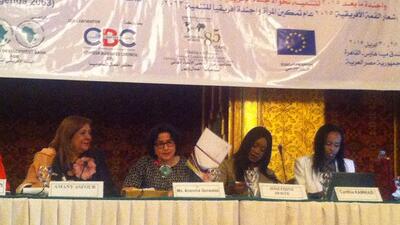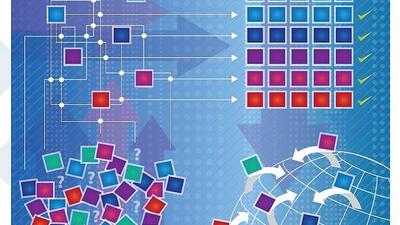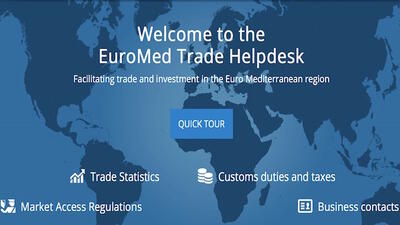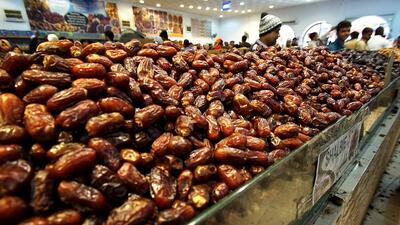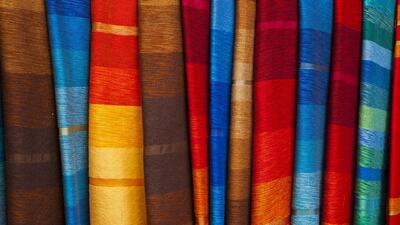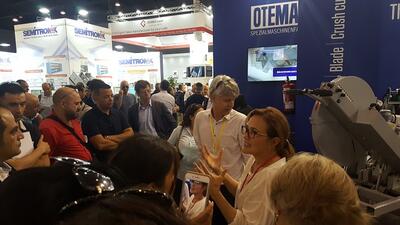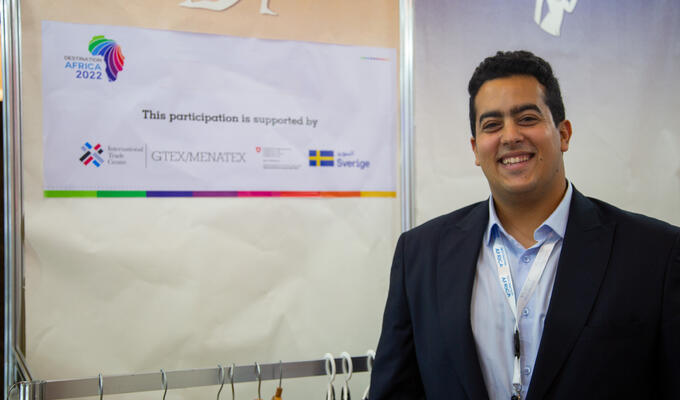
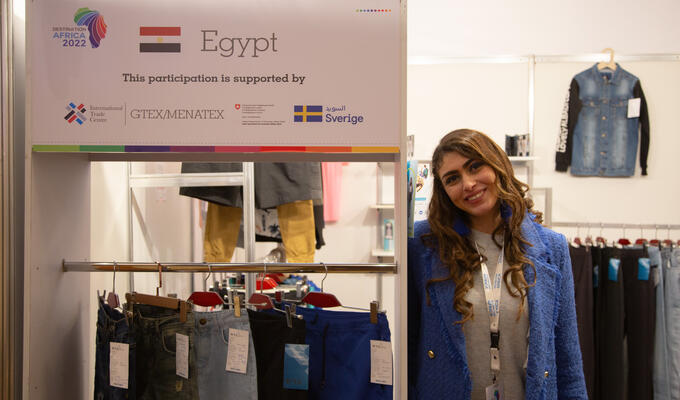
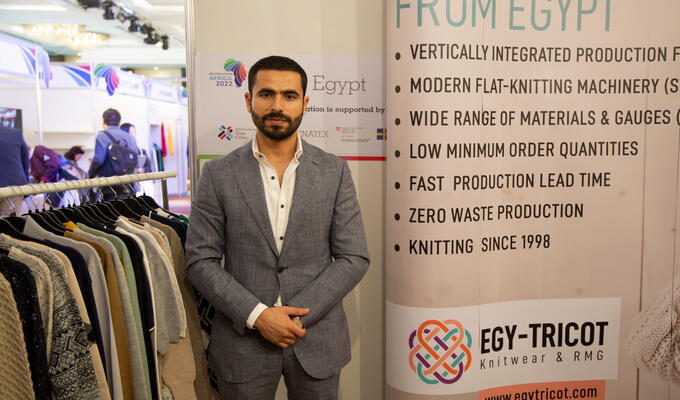
Egypt’s youth make their mark in textiles and clothing
For International Youth Day on 12 August, the GTEX/MENATEX programme at the International Trade Centre (ITC) highlights the achievements of young entrepreneurs in Egypt.
Three young leaders share how they’re running their family textile and apparel businesses while promoting green initiatives, new strategies, and a more sustainable future.
Mark Massoud is the commercial director and band manager at the Egyptian garment producer
VIVA 1960, founded by his grandmother. With a strong background in engineering design and production technology, he got back into his family business, Decathlon, to support the business during the COVID-19 global crisis.
Through his role, Mark recognizes that achieving environment-friendly practices are crucial for the development of the company's brand. He is committed to promoting sustainable practices and knowledge within his family's production process. For instance, the company's facility was built using sand brick blocks as an alternative to traditional clay bricks, resulting in lower heating loads and energy consumption. This is a great example of Viva 1960's commitment to SDG 11 - Sustainable Cities and Communities.
As a Scout member, Mark is passionate about driving communities towards sustainability. To do so, every year, he supports his family business in selecting three different SDGs to focus on new actions to improve their employees’ lives as well as how to manage their business. He recalls being introduced to the SDGs and taking action by conducting an assessment of the factory to identify areas where the company could make the greatest impact.
As the second generation in her family business Winitex, a textile and garment supplier in Cairo, Roba Mazroua’s passion for the industry started at a young age. After graduation, she began her career in the company’s design and development department, working closely with the family.
‘I took on the responsibility of ensuring social compliance and health and safety in my family's business as we aimed to expand internationally and keep up with global trends and standards. With my support, we were able to acquire important international certificates such as The Worldwide Responsible Accredited Production (WRAP), which guarantees that our workers have safe, ethical, and lawful working conditions. It was a challenging but rewarding experience to contribute to our business's success and reputation;’ said Roba.
Roba made significant contributions in the areas of policy development and social compliance. She developed a company policy manual in compliance with local laws, customs and regulations, ensuring the protection of employees' rights. Additionally, in just three years, with the support of ITC, she participated in numerous international trade fairs in Europe and the United States. This helped Winitex become one of the most reputable vendors for the US retail market.
Mohamed Mousaad, co-owner of Egy-Tricot, stepped in to save the then-small and struggling knitting factory which was on the verge of collapse. Mohamed set out to take on the challenge of rebuilding the factory from the ground up, with a vision to become a leading knitwear producer.
‘As a result of this new direction, management and leadership, we are producing for the largest and most reputable brands in Egypt, and through this experience we have begun our exporting journey. The future is bright! That was my contribution to the growth and success of EGY-Tricot,’ said Mohamed.
He expects that the fast-paced progress of technology, as well as the deterioration of the environment, will push brands and consumers to require more sustainable products.
‘I strongly believe that environmental issues will decrease, and the entire supply chain will have the same mindset focused on the reduction of waste, traceability, sustainability, accountability, and improved working conditions. This will result in an unprecedented reform and growth in the T&C sector once again, and with it will come countless employment opportunities.’
Vidéo
About the GTEX/MENATEX Programme
The Global Textiles and Clothing Programme (GTEX) and its related work in the Middle East and North Africa (MENATEX) supports small and medium-sized enterprises and business support organizations working in the textile and clothing industry in developing countries to increase their export competitiveness.
The GTEX/MENATEX programme is funded by the State Secretariat for Economic Affairs (SECO) of the Swiss Confederation and the Swedish International Development Cooperation Agency (Sida), focusing on six priority countries (Egypt, Morocco, Jordan, Kyrgyzstan, Tajikistan and Tunisia).




